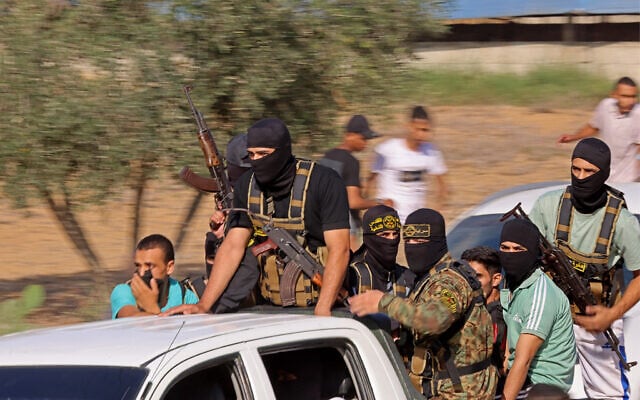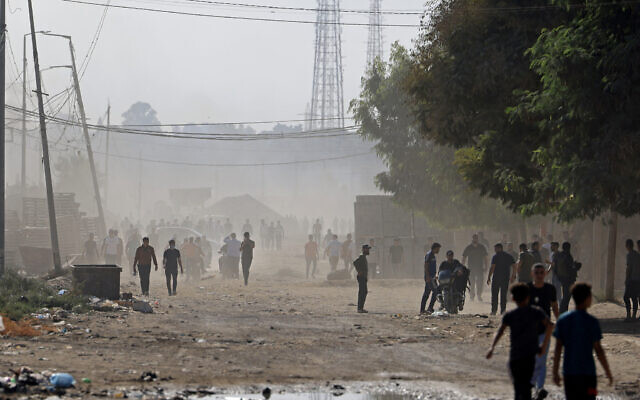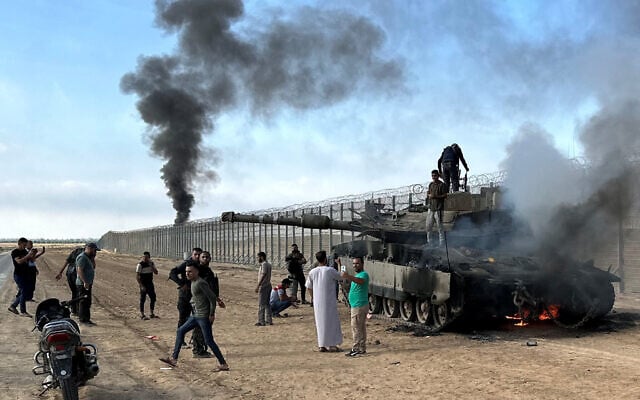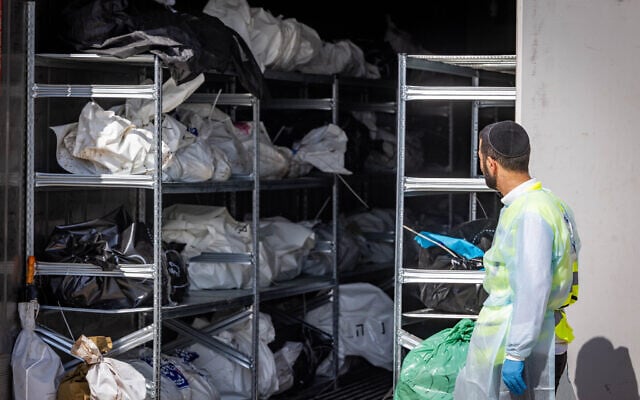


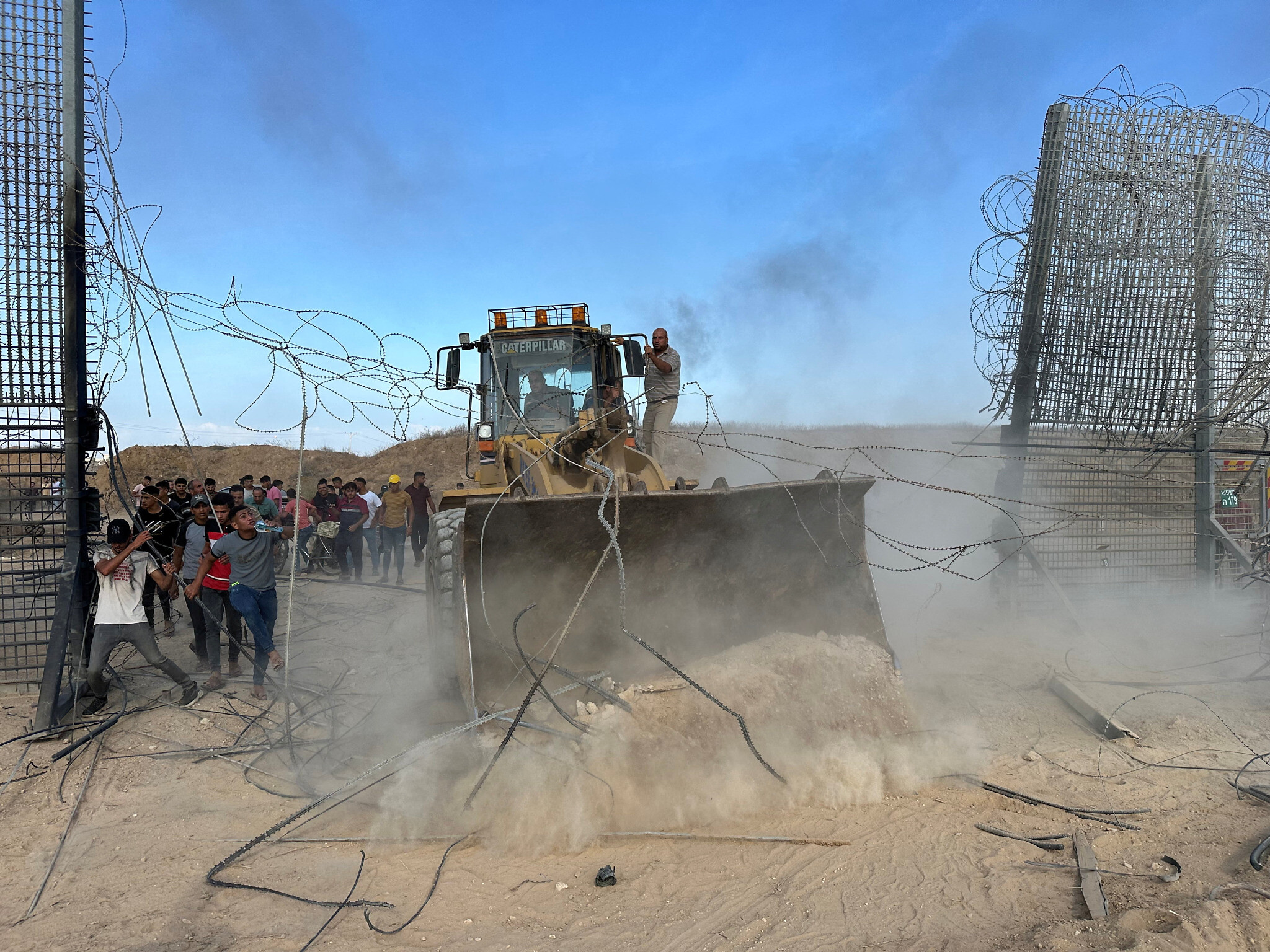
The Shin Bet security agency on Tuesday published a summary of its investigations into its failures during the lead-up to the Hamas terror group’s October 7, 2023, onslaught, with agency chief Ronen Bar acknowledging that if they had acted differently “the massacre would have been avoided.
While the probe found serious internal failures, it mostly pointed to external elements.
The larger political and security failures noted by the report included an unclear division of responsibilities with the IDF, an overly defensive government policy regarding Gaza over the years, and the Shin Bet being unsuited to counter an army-like foe such as Hamas.
The investigations — coming on the heels of the Israel Defense Forces’ probes into its own failures surrounding the attack — were carried out internally by each of the Shin Bet’s units and by an external team of former senior agency employees and other experts, who provided a series of findings, conclusions and recommendations.
Many of the findings remain classified, as they would reveal the Shin Bet’s intelligence secret tools and methods, the agency said.
The investigation found that the Shin Bet failed to provide an alert for Hamas’s October 7 wide-scale onslaught, with warning signs received by the Shin Bet on the night of October 6 not resulting in major actions being taken.
Among the signs was the overnight activation of 45 Israeli SIM cards by Hamas operatives in Gaza, a story widely reported on, but without an exact number confirmed until this report.
The morning of October 7, some 5,000 Hamas-led terrorists invaded southern Israel from the Gaza Strip, killing some 1,200 people and taking 251 hostages, amid acts of brutality and sexual assault.
While a small team of elite officers from the Shin Bet and police that were deployed to the Gaza border before the onslaught managed to contribute to the fighting, they were unable to prevent the massive Hamas attack.
The investigation pointed to several reasons, both related to professionalism and management, which contributed to the failures.
“The organizational failures were thoroughly examined and the lessons were learned and continue to be learned,” the Shin Bet said.
Additionally, the investigation found that the Shin Bet did not underestimate Hamas, but rather the opposite, that the agency had “a deep understanding of the threat, and had initiatives and a desire to thwart the threat and especially the leaders of Hamas.”
Several reasons were given as to why the Shin Bet provided no alert for Hamas’s wide-scale attack:
The Shin Bet investigation found several reasons that enabled Hamas to build up its forces for the October 7 onslaught, and decide to carry out the attack:
In an accompanying statement, Shin Bet chief Ronen Bar said the agency “did not prevent the October 7 massacre” and “as the head of the organization, I will bear this heavy burden on my shoulders for the rest of my life.”
He added: “The investigation revealed that if the Shin Bet had acted differently, in the years leading up to the attack and during the night of the attack — both at the professional level and the managerial level — the massacre would have been avoided. This is not the standard we expected of ourselves, or that the public expected of us.
“The investigation shows that the Shin Bet didn’t underestimate our rival — on the contrary, it took the initiative, went on the offensive and tried to nip the threat in the bud — but despite all this, we failed,” he said
Bar added that truly investigating the failures necessitates a broader probe that also encapsulates the contact and cooperation between security and political elements.
“The path to reparation, as is emphasized in the report, demands a broad process of clarity and truth,” he said. “So I asked the investigatory committee and the agency’s top command to probe and to discuss not only the reasons why the service failed, but also to take a wide look at all the relevant work processes at the organization, as part of learning lessons and as an opportunity for a broad change. But it also demands readiness to change in the political-security interface, otherwise, the failures could come back in the future.”
“I believe this organization is strong, stable, humble and its values are even more professional than they were on the eve of the massacre,” he added.
In his introduction to the report, Bar wrote, “This document was presented to the public and those in the Shin Bet in order to ensure that an event like this won’t happen again.”
“The Shin Bet’s report was written with a head bowed to those whose lives were taken, those who were wounded in body and spirit, and those who were robbed of their freedom, who were kidnapped and cruelly held, those whose families and friends carry their pain and hardship with them, and those who were forced to leave their homes,” he added.
“We are committed to repairing what is necessary in order to prevent, as much as possible, the recurrence of additional catastrophes.”

